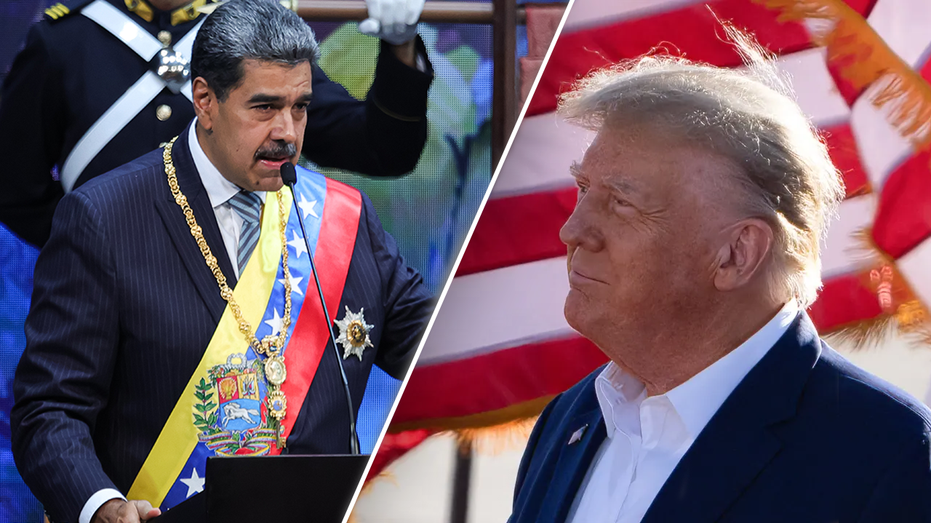Trump May Reverse Decision to End Biden-Maduro Oil Deal, Weighs Tariffs to Protect US Firms

Sarah Johnson
March 20, 2025
Brief
Donald Trump is reconsidering ending Biden's Venezuela oil deal, exploring tariffs to support U.S. oil companies while maintaining pressure on Maduro and backing American jobs.
In a potential shift in strategy, former President Donald Trump is reportedly reconsidering his decision to terminate an oil deal brokered by his predecessor, Joe Biden, with Venezuelan leader Nicolás Maduro. Instead, Trump is exploring the possibility of imposing tariffs on Venezuela to protect U.S. oil companies and workers.
During a White House meeting on Wednesday, several Cabinet secretaries, including Chris Wright from the Department of Energy, Doug Burgum from the Department of the Interior, and Howard Lutnick from the Department of Commerce, joined oil executives and energy advocates in a discussion about how to address the Maduro regime while bolstering U.S. energy interests.
A source familiar with the meeting described it as a brainstorming session focused on balancing U.S. foreign policy with domestic energy goals. Trump reportedly expressed enthusiasm for ideas that would align with his longstanding hardline stance against the Caracas dictatorship while supporting American consumers and workers.
One notable proposal came from Howard Lutnick, who suggested that tariffs on Venezuelan oil could increase pressure on Maduro while allowing U.S. oil firms to maintain their operations in the resource-rich nation. Trump appeared receptive to this approach, a source confirmed, as it aligns with his broader economic agenda of prioritizing U.S. jobs and lowering domestic energy costs.
Back in February, Trump criticized the Maduro regime for failing to uphold its commitments under the Biden-era oil deal, particularly regarding election reforms and the repatriation of violent criminals. On his Truth Social platform, Trump declared the agreement "ineffective and unmet," ordering U.S. firms to begin winding down their Venezuelan operations by March 1. Maduro’s deputy, Delcy Rodriguez, called the move "damaging and inexplicable."
Despite his initial decision to revoke the deal, Trump now seems intent on exploring ways to leverage Venezuelan heavy crude, which is well-suited for Gulf Coast refineries and could drive job growth in the U.S. Wright, speaking to Reuters after the meeting, emphasized that Trump’s economic strategy revolves around lowering prices and creating American jobs.
The evolving U.S. stance on Venezuela has drawn praise from figures like Venezuelan opposition leader Juan Guaidó and Florida Rep. Carlos Gimenez, who hosted Guaidó at a Miami event earlier this month. Guaidó commended Trump’s approach to challenging Central American dictatorships and called for a united effort to promote democracy and freedom in the region.
"We need a strong, prosperous, and safe Latin America—one that thrives with democracy and freedom," Guaidó said, adding that Trump's hardline messaging sends a clear warning to authoritarian regimes in Cuba, Nicaragua, and Venezuela.
Venezuela, once a key U.S. oil-trading partner, has become a challenging player on the global stage due to its leftist government, which took root under Hugo Chavez in the late 1990s. With geopolitical tensions and energy needs in play, the U.S. appears to be reassessing its strategy for navigating relations with the oil-rich nation.
Topics
Editor's Comments
Trump's pivot from shutting down the Biden-Maduro oil deal to considering tariffs shows his knack for keeping things unpredictable. While the idea of squeezing Maduro with tariffs instead of pulling the plug entirely might sound clever, it’s hard not to notice the balancing act between foreign policy and domestic job creation. The whole situation feels like a geopolitical chess game, where every move risks toppling a piece—whether it’s U.S. firms, Venezuelan opposition movements, or Gulf Coast refinery workers. Let’s hope this gamble doesn’t leave anyone in checkmate.
Like this article? Share it with your friends!
If you find this article interesting, feel free to share it with your friends!
Thank you for your support! Sharing is the greatest encouragement for us.



